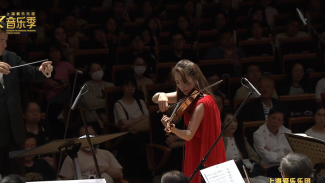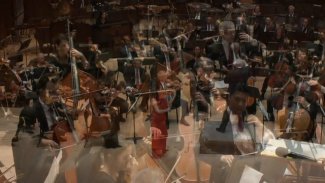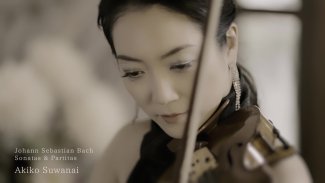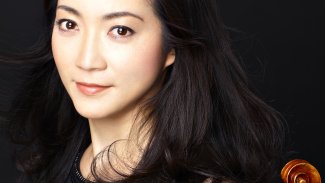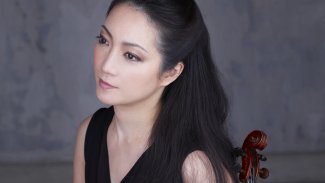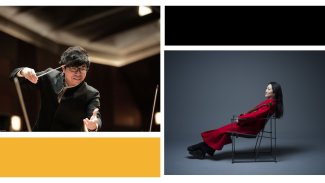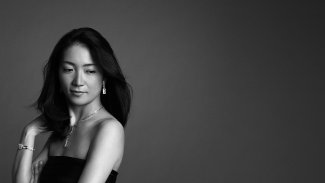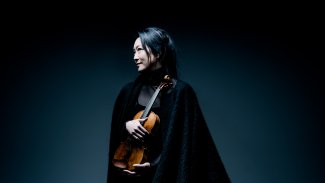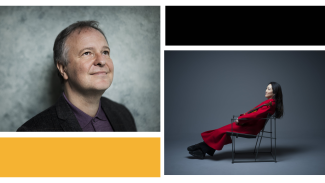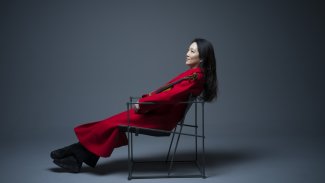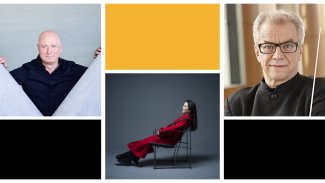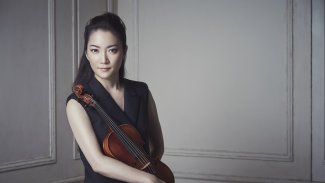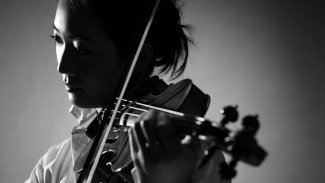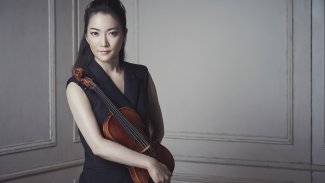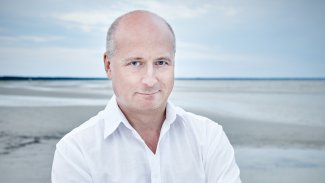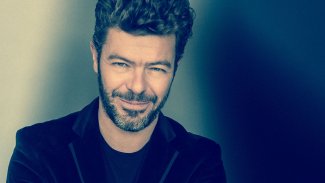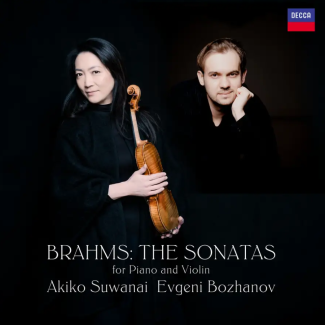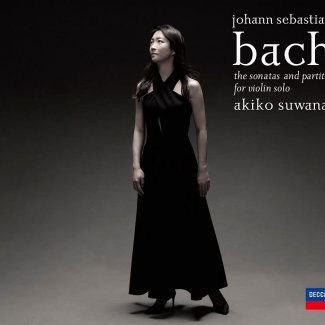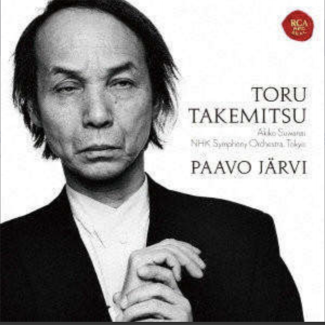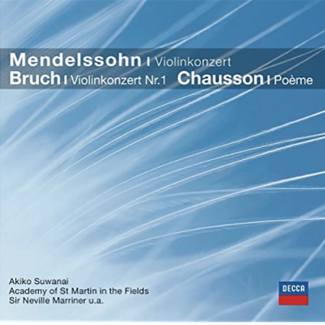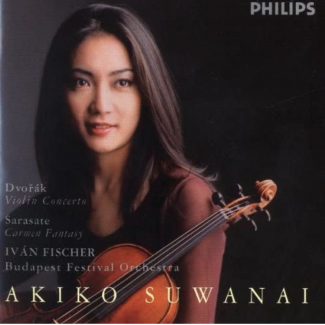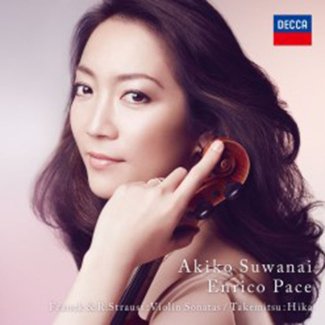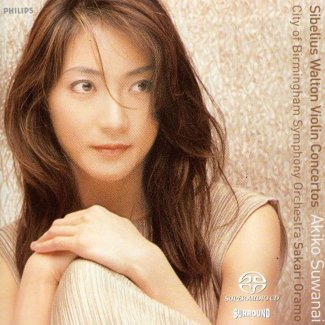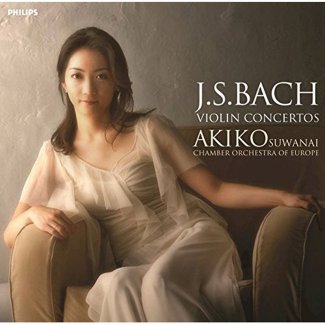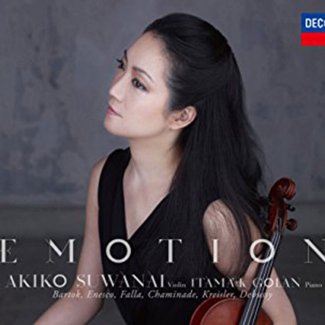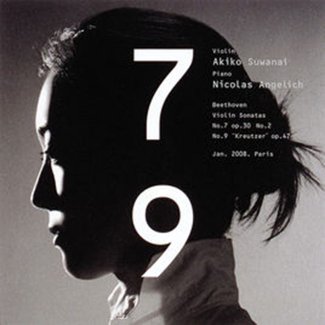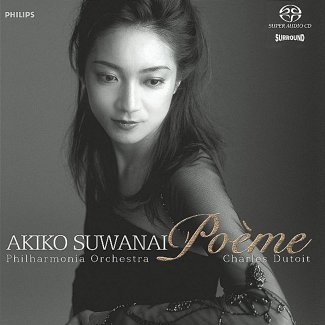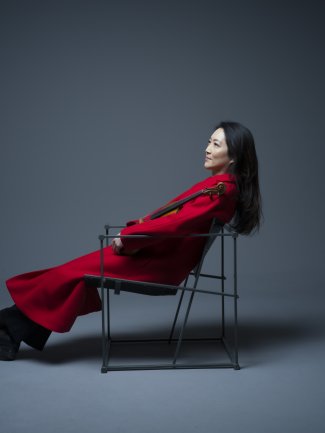
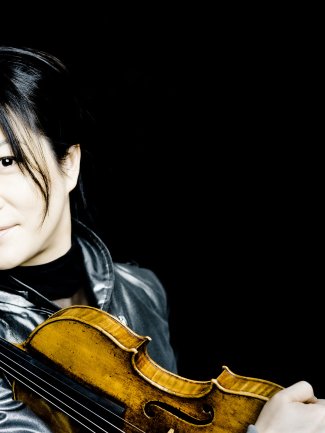
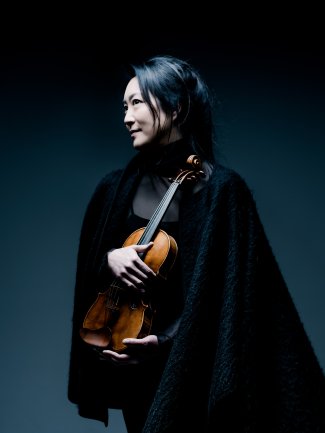
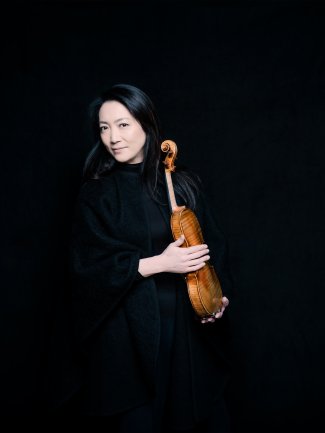
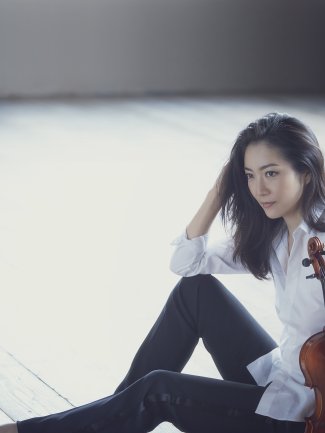
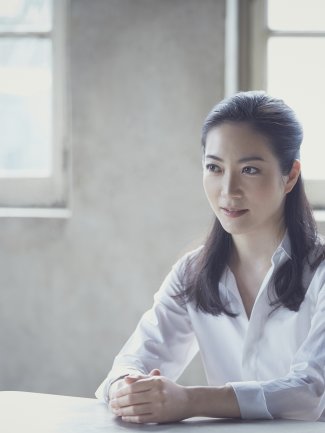
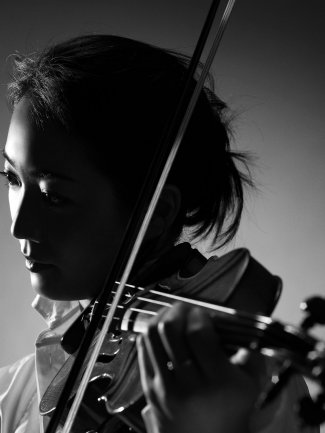
Akiko Suwanai
“Her big, focused, almost piercing tone took over, carving sonic space, a race car driver weaving in and out of (and even cutting off) traffic”
The Washington Post
Capturing audiences with her “staggering sonority” (The Straits Times, April 2025), Japanese violinist Akiko Suwanai is a musician of considerable versatility and breadth of repertoire. Since winning the International Tchaikovsky Competition in 1990 she has enjoyed a flourishing career, performing internationally in chamber music and recital and engaging at the highest level with orchestras and conductors.
Suwanai begins the 2025/26 season with returns to the Luzerner Sinfonieorchester/Duncan Ward and the Budapest Festival Orchestra / Jaime Martín, and will debut with the Mozarteumorchester Salzburg / Andrey Boreyko. Later in the autumn she will join the Hallé Orchestra and Principal Conductor Kahchun Wong on tour in China and in Manchester and Sheffield, as well as the BBC National Orchestra of Wales with Jaime Martín on tour in Spain and in Cardiff. Other highlights include the Orchestre Philharmonique de Nice / Lionel Bringuier, the Lahti Symphony / Christian Schumann and returns to the Belgian National Orchestra / Antony Hermus and the Macao Orchestra / Lio Kuokman. Suwanai’s 2024/25 season was marked by an Asian and European tour with the NHK Symphony Orchestra / Fabio Luisi performing Berg’s Violin Concerto, returns to Die Deutsche Kammerphilharmonie Bremen/Paavo Järvi and the Gürzenich-Orchester / Sakari Oramo, and a debut with Sydney Symphony Orchestra/Dmitry Matvienko.
See more
Known for her breadth of repertoire and passion for new music, Suwanai will give the world premiere of a new violin concerto by Misato Mochizuki with Yomiuri Nippon Symphony Orchestra / Mario Venzago in February 2026. The work will also be premiered in North America with Espirit Orchestra. In previous seasons she has premiered Dai Fujikura’s Double Concerto for Flute and Violin with the Netherlands Radio Philharmonic / Karina Canellakis and Peter Eötvös’ Seven at the Lucerne Festival under Pierre Boulez and at the BBC Proms under Susanna Mälkki. Suwanai has also given Asian premieres of important new violin concertos by James MacMillan, Esa-Pekka Salonen and Krzysztof Penderecki. Other notable performances of new works include Toshio Hosokawa’s Genesis with Gürzenich-Orchester / Osmo Vänskä, Guillaume Connesson’s Lost Horizons with St Louis Symphony Orchestra / Stephane Denève and recordings of works by Tōru Takemitsu with NHK Symphony Orchestra /Paavo Järvi.
Signed to Decca Classics, Suwanai is also universally acclaimed for her performances of the core violin repertoire and has released Brahms: The Sonatas for Violin and Piano (2024) and Bach’s Complete Sonatas and Partitas for Solo Violin (2022).
In 2012, Akiko launched the Nagoya- and Tokyo-based International Music Festival NIPPON as Artistic Director. This biennial festival presents a variety of guest orchestras and chamber concerts and commissions new works and world premieres by Japanese and international composers. At the festival Akiko has premiered new works including Karol Beffa’s Violin Concerto alongside Die Deutsche Kammerphilharmonie Bremen and Dai Fujikura’s Pitter-Patter with Boris Berezovsky.
Suwanai performs on the“Charles Reade” Guarneri del Gesù violin (1732), generously loaned to her by Dr. Ryuji Ueno, a Japanese-American collector and philanthropist.
Contacts
Jane Brown Senior Director, Co-Head of Artist Management Isabella Thorneycroft Artist Coordinator
worldwide general management
HarrisonParrott exclusively represents Akiko Suwanai throughout the world except in Japan and Spain.
Isabella Thorneycroft Artist Coordinator
Isabella Thorneycroft Artist Coordinator
worldwide general management
HarrisonParrott exclusively represents Akiko Suwanai throughout the world except in Japan and Spain.
“Akiko Suwanai shines with lyricism and fire in Tchaikovsky with the Hallé.”
“The sound of her instrument…was one of the most beautiful ever heard on the stage of Sibelius Hall… Suwanai’s approach felt quite radical and refreshing…the inspiration was drawn not from the soil, but from the high heavens.”
“Her staggering sonority”
“…almost inhumanly possible virtuosity.”
“her sound was burnished and her phrasing expressive. She easily conquered the devilish challenges of the cadenza while displaying a sense of spontaneity.”
“Suwanai is known for her broad repertoire and extraordinary technical skill, making her a standout even amongst the most talented musicians in the world”
“This time, the two musicians brought Ligeti’s violin concerto, and Bruckner’s Symphony number 6 in A major, the most peculiar of the composer. With both, director, violinist and orchestra dazzled the public and built, as if nothing had happened, a universe of diverse and disparate sounds in which there was even room for ocarinas and flutes to mix with violins, violas and the percussion.”
“Suwanai, with full-throated flourish, took a couple of approaches to the parley. At first, she used a notably flexible sense of tempo to command the dialogue, calling extra attention to notes and phrases; in the finale, her big, focused, almost piercing tone took over, carving sonic space, a racecar driver weaving in and out of (and even cutting off) traffic.”
“Akiko Suwanai… took the stage for a blockbuster performance of Tchaikovsky’s Violin Concerto… She drew forth a searing tone from the 1714 Delfino Stradivarius, an instrument matched beautifully to her bold melodic flair.”
“Her reading of the Third Violin Concerto in G major (K216) was as perfect a conception as one hoped possible… Every passage and phrase sounded freshly minted and pristine in clarity…. The slow movement was an epitome of grace, and one wished it not to end.”
“The first notes played by Akiko Suwanai impress with magnitude of sound, the depth of dense and dark timbre throughout the registers. The phrasing captivates with exemplary ductility and seduction”
“Although the work [Max Bruch’s Violin Concerto No. 1] suffers from having been played endlessly, it was a wonderful performance. Suwanai has a round, beautiful sound and perfect technique, devoid of unnecessary mannerisms. She did not try to move us “by force” but simply devoted herself completely to the music and let the notes do their work. [….] Truly lovely playing”
“This superb composition in four parts, which constantly solicits the violin, is played by Akiko Suwanai, who, through her wide sound, ensures its virtuosity and true warmth, in music written with great harmonic knowledge and constant melody.”
“Akiko Suwanai may be small in stature, but in no way did this impact on her ability to create a big sound or tackle complex, virtuosic passages. The way she approached the [Korngold’s Violin Concerto] opening with warmth, depth, and beauty, giving it such spine-tingling clarity, made one immediately realise that this was a very impressive soloist.”
“Hearing Akiko Suwanai play Mendelssohn’s E minor Violin Concerto made one realize that this wonderful work’s virtues are often taken for granted – the skilfully contrived transitions and the precise balance between lyricism and dynamism. Suwani’s lithe playing, refulgent tone and impeccable taste ensured that those qualities received their due.”
“Unfailingly assured and polished”
“…It was her sheer warmth and communicative skills that made the difference. In the Larghetto Suwanai again let the music breath unhurriedly: there was an improvisational quality in her playing, a gentle poetry that was most moving. In the finale she brought a joyous quality to the triple rhythm: in her hands the music had a dance-like nature.”
“Akiko Suwanai is, moreover, a superb soloist in the Violin Concerto. She plays with a swirling virtuosity which, in a perfectly natural way, works alongside the objective harshness of the work, and you can hear the free-spirited thinking described by Carl Nielsen as the glorious boundaries of our freewill. “It demands you to listen, look, think, be silent, weigh and choose.”
“The poco adagio was sublime… Her Nielsen was pure virtuosity (oh, the cadenzas!)… Suwanai has reached the top level of artistry and here in Asturias we have been lucky enough to witness her ascent during these past six years.”
“The orchestra seemed to wrap itself around soloist Akiko Suwanai, a wonderful player who seemed rather more wonderful with the Philadelphians framing her.”
